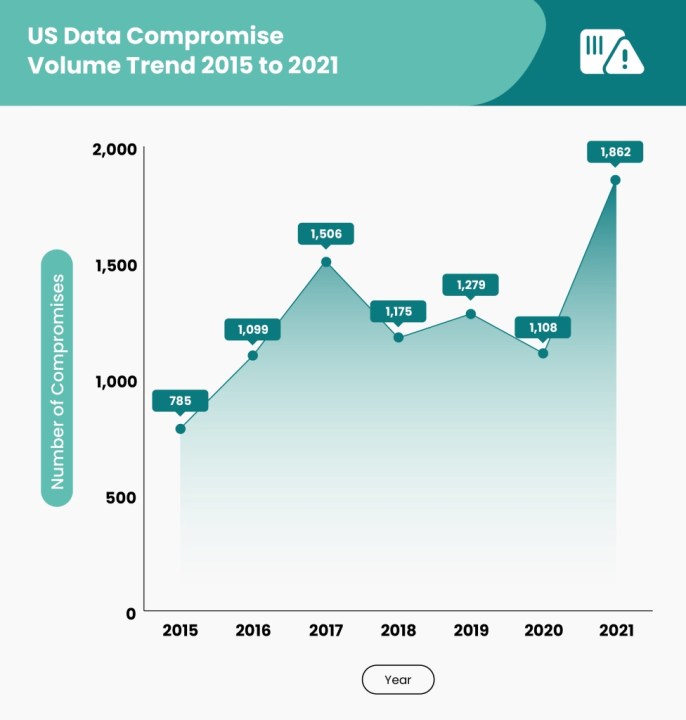Online payment fraud increased 137% over the past seven years according to research conducted by SEON, a UK-based fraud prevention service.
SEON based its research on data from the Identity Threat Research Center and used it to identify data compromises that came from online payments.

There is a lot of data to surf through, but there are some interesting details. For one, despite an overall decline in data compromises through online payments between 2018-2020, the amount between 2020 and 2021 skyrocketed. That year alone saw a 62% increase in fraud activity, higher than any other point in the seven years measured.
It’s also worth noting that even though 2021 saw the highest number of compromises, it also saw the lowest number of victims. These years saw some of the highest-profile data breaches in modern history, and companies are now taking customer data privacy seriously. This added security is likely why there is a lower overall impact to these breaches.
The types of attacks are also evolving. While phishing scams are still the most common form of online payment fraud, ransomware is on the rise. Between 2020 and 2021, the number of ransomware attacks alone doubled.
The type of data stolen is also relevant. A lot of information is irrelevant to fraudsters, but they are after crucial data that can be damaging to your credit and overall financial health. Individuals’ full names were the most commonly stolen data, followed by their full social security number and date of birth. Healthcare data breaches are also increasing, which means medical history is being stolen as well.
SEON is focused on data prevention for small businesses, but there are a number of steps individuals can take to protect their data as well. For one, using a password manager and creating complex passwords greatly reduces the likelihood of someone accessing your account. Also managing what data companies collect from you can help reduce risk.



